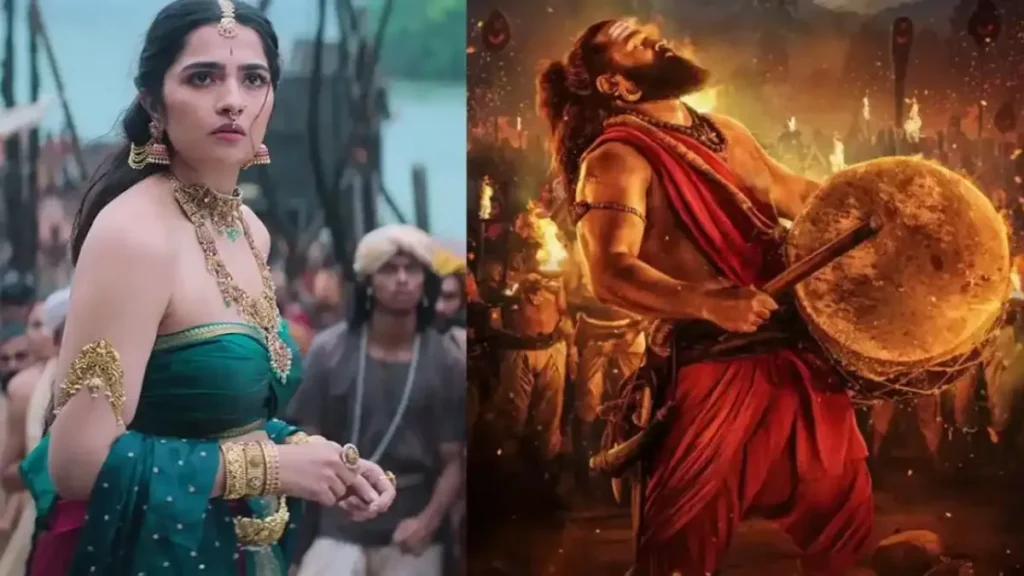The premiere of Kantara-1 left audiences visibly exhausted, but not in the way one might expect. This film isn’t just a movie; it’s an experience—one that takes you beyond the realm of cinema and into the divine. It’s a darshan, a vision of God, that overwhelms viewers with its spiritual depth.
From the opening scene, Kantara sweeps you away, blurring the lines between reality and divinity. It’s not just light that illuminates the screen but a presence that haunts and captivates. As each scene unfolds, the audience is drawn deeper into the mystical world of Kantara. The more you think about it, the more it lingers in your mind, almost as if you’ve stepped into a sacred world.
At the heart of the film is Rishab Shetty, whose direction, acting, and storytelling form the lifeblood of this epic tale. Yet, the true protagonist is not Shetty’s character but the divine entity itself—God. The story revolves around the struggle to possess this divine power. The movie presents a profound conflict: believers seeking to protect their sacred land, rulers trying to assert control, and outsiders desiring the untold wealth of the forest. The narrative explores the intersection of fear, devotion, and greed.
Kantara starts with a rich backstory
Kantara Chapter 1 starts with a rich backstory, set during the Kadamba era. It contrasts the rulers with forest dwellers who hold deep reverence for their God. As the plot unfolds, issues like caste, taxation, and social division emerge, and the film gradually immerses us in the struggles of these forest dwellers. The real story, however, takes shape in the second half, where the stakes intensify.
After the interval, the pace picks up. The audience is kept on edge, wondering whether Rishabh Shetty’s character, a guardian of the forest, will triumph against the forces of the kings. The first epic battle sets the stage for an unforgettable climax, marked by shocking twists that leave viewers in awe. The film’s dual climax, which includes a powerful vision of ‘Param Shiva’ and a dramatic encounter with a tiger, takes the audience on a thrilling and divine journey.
Rishab Shetty shines not just as the director but also as the film’s anchor. His vision is brought to life with stunning performances, particularly from Rukmini Vasanth as Kanakavati, who elevates her role beyond a mere love interest. Bollywood actor Gulshan Devaiah brings nuance to his role, striking the right balance between seriousness and humour.
Music by Ajaneesh provides the perfect emotional undercurrent, while the VFX—especially in the forest and battle scenes—adds to the realism, creating a visually striking world. Cinematographer Arvind Kashyap’s camera work, especially during the war scenes, evokes memories of Baahubali, but Kantara manages to carve its own distinct identity.
In an era where sequels and prequels often falter, Kantara stands apart. It retains the essence of the first film while introducing fresh elements, ensuring that the audience is in for a new experience. Rishab Shetty’s meticulous attention to detail is evident in every frame, leaving viewers with a sense of pride for Kannada cinema. With hints that the Kantara series will continue, it’s clear that this divine journey is far from over.
Kantara-1 is not just a film. It’s a spiritual awakening, a cinematic masterpiece that will resonate long after the credits roll.

